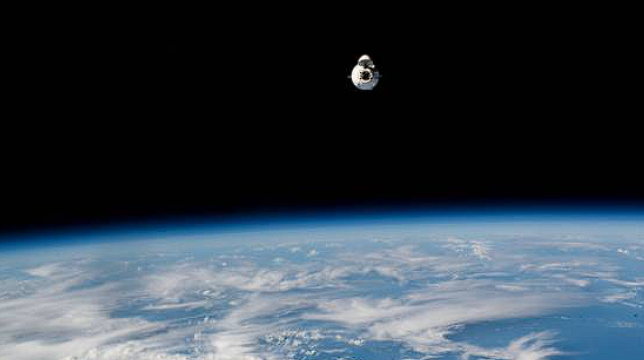Seeds that the International Atomic Energy Agency (IAEA) and the Food and Agriculture Organization of the United Nations (FAO) had sent into space last year have successfully returned to Earth, marking a significant milestone in their efforts to develop crops that are more resilient to the effects of climate change. With global temperatures rising and the population increasing, farmers worldwide need help to meet the growing demand for food.
Through their Joint FAO-IAEA Centre of Nuclear Techniques in Food and Agriculture, they sent seeds into space to explore cosmic radiation’s effects on accelerating crops’ natural genetic adaptation to changing environmental conditions. The successful return of the Arabidopsis and Sorghum seeds, which had spent around five months at the International Space Station (ISS), paves the way for scientists to begin analysing the results.
Launched from NASA’s Wallops Flight Facility, Virginia, on November 7 last year, the seeds were chosen because there was already a large bank of scientific data available for comparison. After being released from the ISS in the SpaceX CRS-27 cargo craft on April 15 at 17:05 CEST, the seeds made a parachute-assisted splashdown near the Florida coast at 22:58 CEST. The seeds will now undergo screening and analysis for desirable traits in the Joint FAO/IAEA Centre laboratories in Seibersdorf, Austria.
IAEA Director General Rafael Mariano Grossi called the cosmic crops project “very special”, adding that it could have a meaningful impact on people’s lives in the not-too-distant future by helping to grow stronger crops and feed more people. Meanwhile, FAO Director-General Qu Dongyu noted that the experiment could help develop crops that adapt to climate change and boost global food security.
Laboratory radiation typically occurs in a machine using gamma rays or X-rays, which accelerates the process of spontaneous genetic variation. Scientists then work to identify positive traits in irradiated seeds and introduce those traits into future generations, allowing plants to evolve faster with desirable qualities such as disease resistance and drought tolerance. However, the wide range and heavier radiation in space, combined with microgravity and extreme temperature changes, could trigger genetic changes that are not generally encountered with radiation sources on Earth.
The Arabidopsis seeds, which are easy and inexpensive to grow and produce many seeds, will be tested for drought, salt, and heat tolerance. Meanwhile, the nutrient-packed cereal grain Sorghum, which can grow on arid lands, will be tested for desirable traits for climate change resilience. The IAEA-FAO labs will grow the Sorghum and Arabidopsis seeds to the next generation before trait selection, and initial results could be available in October this year.
DNA will be extracted and sequenced from both crop species to compare changes between the seeds irradiated in a laboratory, those positioned inside the ISS, and those positioned outside the ISS and exposed to full cosmic radiation, microgravity, and extreme temperatures. These comparisons and the analysis of plant biology will help scientists determine whether harsh space conditions have a uniquely beneficial effect on crop improvement that could benefit people on Earth.


